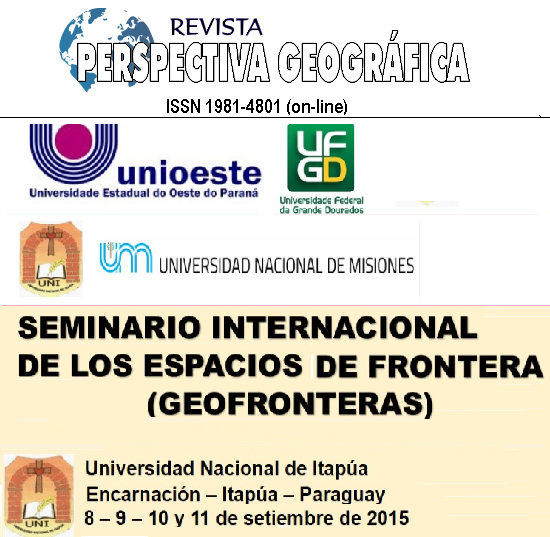Urban Mobility with Bicycles and the Automobile's Hegemony in Maringa Urban Space
Keywords:
Geografia urbana, Mobilidade por bicicletas, Direito à cidade democratização do espaço urbano.Abstract
The perspective of this paper is to diagnose the geographical and cultural aspects involving urban mobility with bicycles in the city of Maringá, Paraná, Brazil, signaling to awareness policies and changes in the infrastructure in order to enable the use of this means of transportation and thus improve the conditions in urban displacements. This is a critic about the automotive dominance, which has failed in several aspects since the cities based on this urban model are too costly and environmentally polluted. It will also be investigated the historical moment in which the preference for individual motorized transport in detriment of others was consolidated, since Maringa already has had another picture in these aspects. The methodology adopted in the survey has a multidimensional character involving the sources crossing from: collection of statistical data, documentary research, bibliographic research, comparative analysis and semi-directed interviews, in order to extract qualitative information of the deponents. It will also address the right to urban areas, because we believe that the predominance of the motorized means in roads precludes citizens their "right to the city", therefore a new meaning to the city is necessary.Downloads
Published
23-02-2017
How to Cite
SIMÕES FLÓRIO DE OLIVEIRA, E.; RAMOS DE OLIVEIRA, N. F.; DA SILVA, H. M. Urban Mobility with Bicycles and the Automobile’s Hegemony in Maringa Urban Space. Perspectiva Geográfica, [S. l.], v. 11, n. 15, p. 23–30, 2017. Disponível em: https://saber.unioeste.br/index.php/pgeografica/article/view/16315. Acesso em: 12 jul. 2025.
Issue
Section
Artigos
License
Aviso de Direito Autoral Creative Commons
Política para Periódicos de Acesso Livre
Autores que publicam nesta revista concordam com os seguintes termos:
1. Autores mantém os direitos autorais e concedem à revista o direito de primeira publicação, com o trabalho simultaneamente licenciado sob a Licença Creative Commons Attribution que permite o compartilhamento do trabalho com reconhecimento da autoria e publicação inicial nesta revista.2. Autores têm autorização para assumir contratos adicionais separadamente, para distribuição não-exclusiva da versão do trabalho publicada nesta revista (ex.: publicar em repositório institucional ou como capítulo de livro), com reconhecimento de autoria e publicação inicial nesta revista.
3. Autores têm permissão e são estimulados a publicar e distribuir seu trabalho online (ex.: em repositórios institucionais ou na sua página pessoal) a qualquer ponto antes ou durante o processo editorial, já que isso pode gerar alterações produtivas, bem como aumentar o impacto e a citação do trabalho publicado (Veja O Efeito do Acesso Livre).
Licença Creative Commons
Esta obra está licenciada com uma Licença Creative Commons Atribuição-NãoComercial-CompartilhaIgual 4.0 Internacional, o que permite compartilhar, copiar, distribuir, exibir, reproduzir, a totalidade ou partes desde que não tenha objetivo comercial e sejam citados os autores e a fonte.


